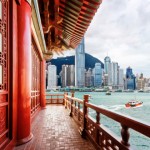Additions include nouveau riche and the WeChat social media app

New entries include “wealth management,” “online shopping,” and “particulate” meaning the particles that make up air pollution, underscoring characteristics of cosmopolitan Chinese life.
Some language pundits disagree that words with virtual origins should be included in the dictionary and mainstreamed. One word that is particularly contentious is tuhao, traditionally used to describe wealthy landowners in the country who abuse their power. Today, tuhao is used to describe the nouveau riche who spend conspicuously and ostentatiously, judged for having poor values.
Yang Erhong, a professor at Beijing Language and Culture University who studies media language, is wary of new some new entries.
“Online words, such as tuhao, are used widely among young people, while dictionaries are for people of all ages,” she told The China Daily. “Children and older people may have difficulty understanding the meaning without the internet context.”
Other interesting additions to the dictionary include weixin for the popular WeChat app, zhengnengliang for positive energy or good vibes, and tucao for making complaints.


